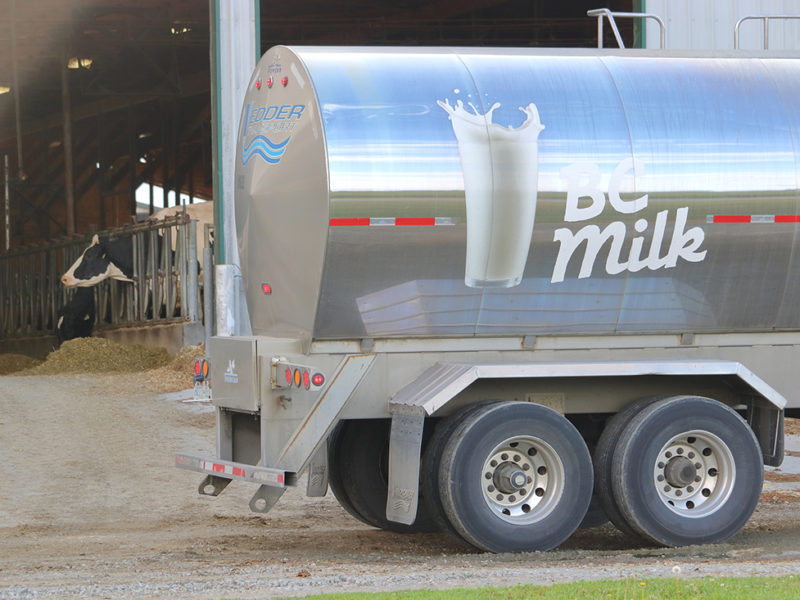VANCOUVER – The Western Milk Pool (WMP) has taken the first step in decreasing the cost of moving milk around the four western provinces and potentially increasing processing capacity in the West.
“We have been working on strategies (to reduce freight costs and increase processing capacity) for the past three years,” BC Milk Marketing Board director Tom Hoogendoorn told producers at the BCMMB fall producer meeting in Vancouver, November 27.
To do that, WMP has formed Dairy Innovation West (DIW), a new company jointly owned by the four western milk marketing boards. DIW will build a new dairy concentration facility near Red Deer, Alberta. Construction will begin in April, with completion by March 2021.
The first facility of its kind in Canada, DIW will remove water from raw milk to create concentrated whole milk, concentrated skim milk, ultra-filtered milk and cream and permeate for use by dairy processors. In itself, DIW will not increase capacity. Instead, it will be part of the “transportation infrastructure,” reducing milk volume by at least 50%.
As fewer larger plants replace smaller plants, it has become necessary for the WMP to move milk longer distances, often across provincial borders. Reducing the volume of milk being moved will reduce freight costs for producers throughout the WMP.
“It’s the future of milk movement,” Hoogendoorn said, with WMP chair Harry Hartman of Manitoba adding it will ensure the pool gets “the right amount of milk to the right plant at the right time.”
Holtman stressed that it will also reduce the industry’s environmental footprint.
“By halving the number of trucks moving milk across provinces, it will reduce trucking emissions by 50%.”
Vitalus under contract
The plant will be financed through the WMP transportation fund and operated under contract by Abbotsford-based Vitalus Nutrition Inc. Vitalus already has drying and processing plants in Abbotsford and Winnipeg. The plant is intended to be a non-profit enterprise although no one would say when producers will see a payback through decreased freight charges.
Alberta, Saskatchewan and Manitoba have already approved DIW but it still needs BC’s approval. BCMMB chair Ben Janzen says producers “overwhelmingly” supported the concept at recent closed-door meetings and BCMMB is now working through the regulatory requirements with the BC Farm Industry Review Board and the BC Ministry of Agriculture.
Both Janzen and Vitalus president Philip Vanderpol say the new plant, which will be able to handle 300 million litres, will not initially increase processing capacity.
“The capacity of the dryers has not changed but they will now receive a combination of raw and concentrated milk,” Vanderpol explained.
“We still need to work on getting more processing capacity,” Janzen said, adding that may be on its way.
“If we can get the volume of milk we need, we can make that happen,” he said coyly.
Vanderpol is more forthcoming, saying the concentrated milk will allow processors to increase capacity at a lower cost.
“It’s definitely something I’m considering,” he said.


 Pacific Ag Show keeps up with changing times
Pacific Ag Show keeps up with changing times